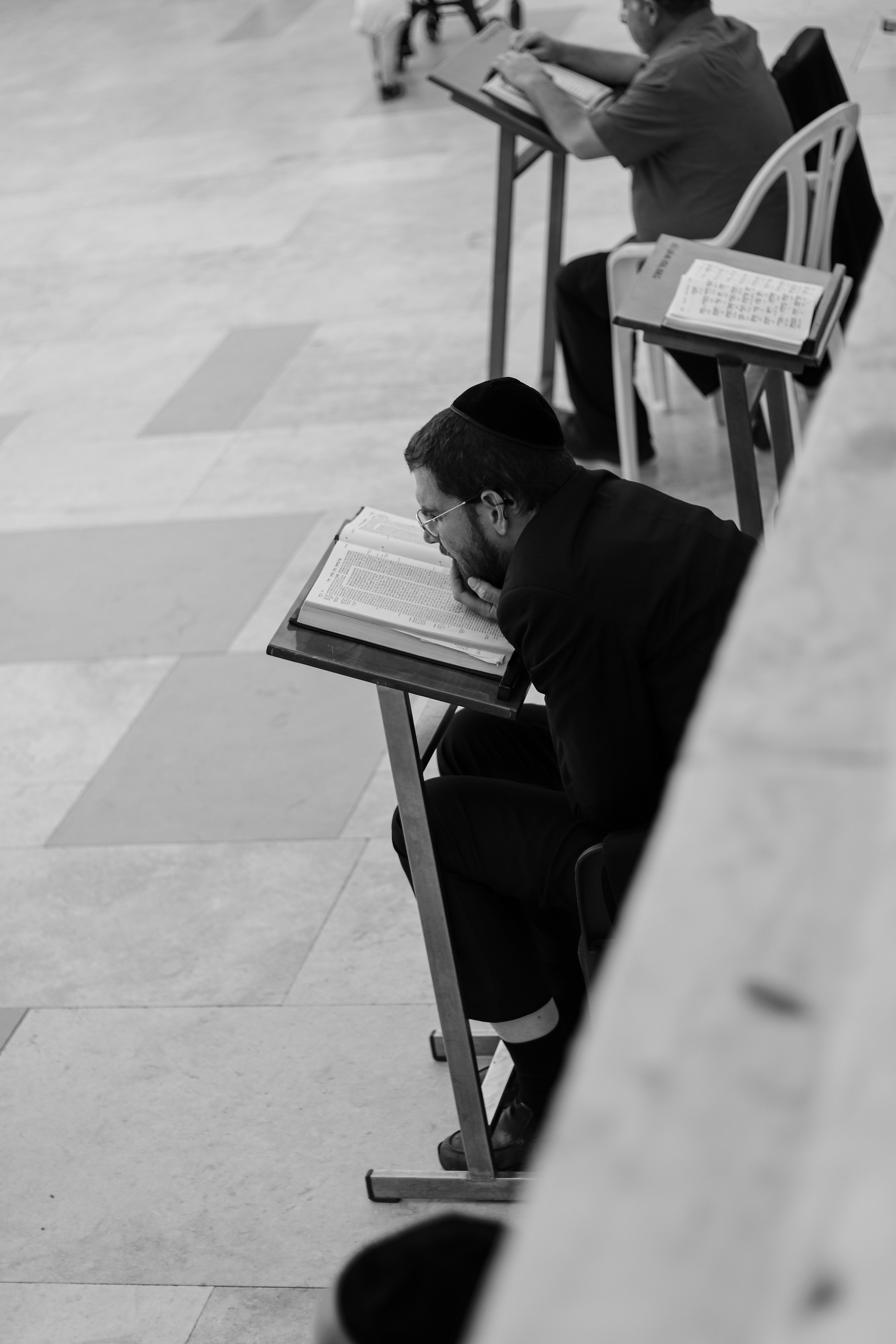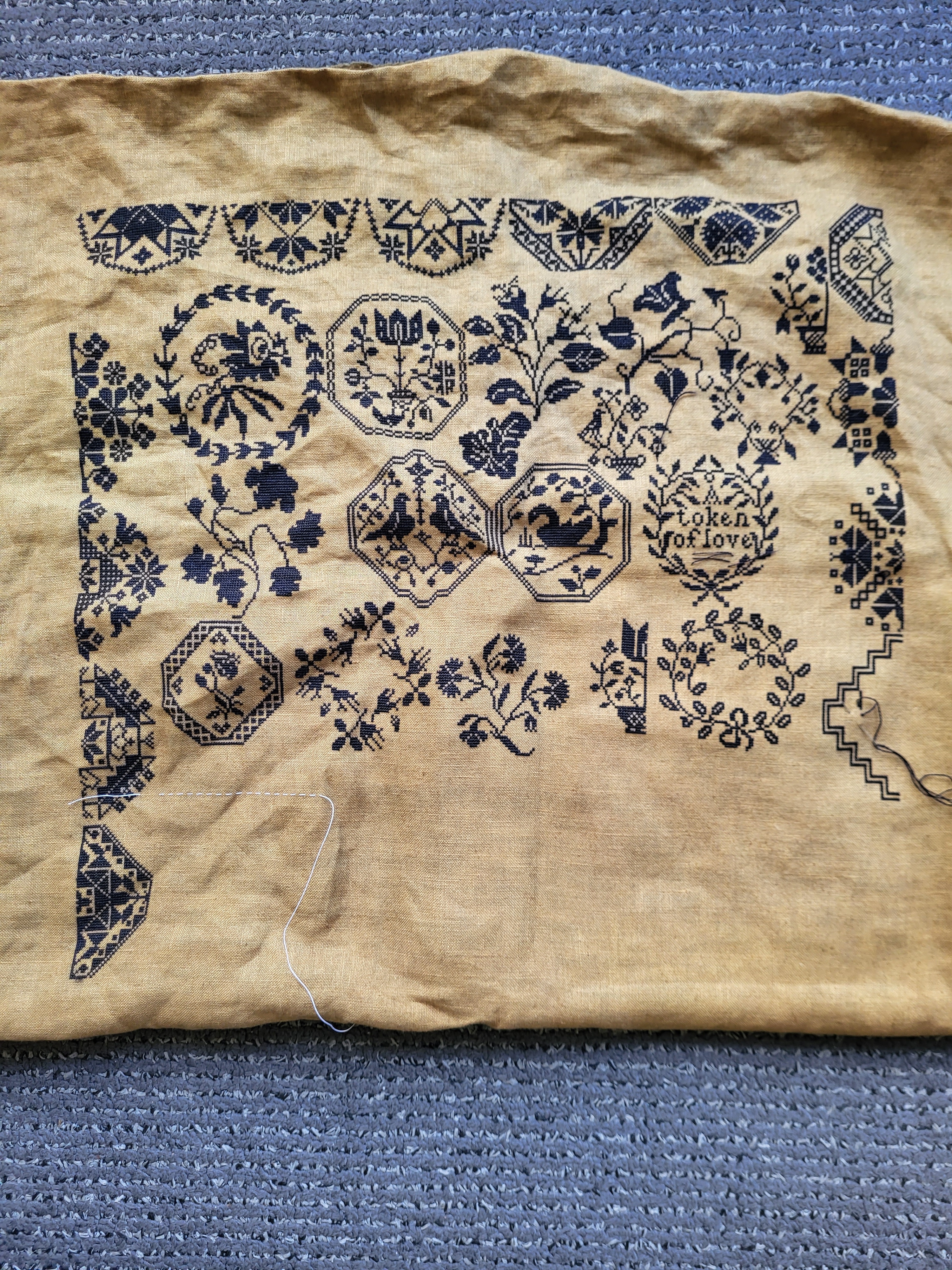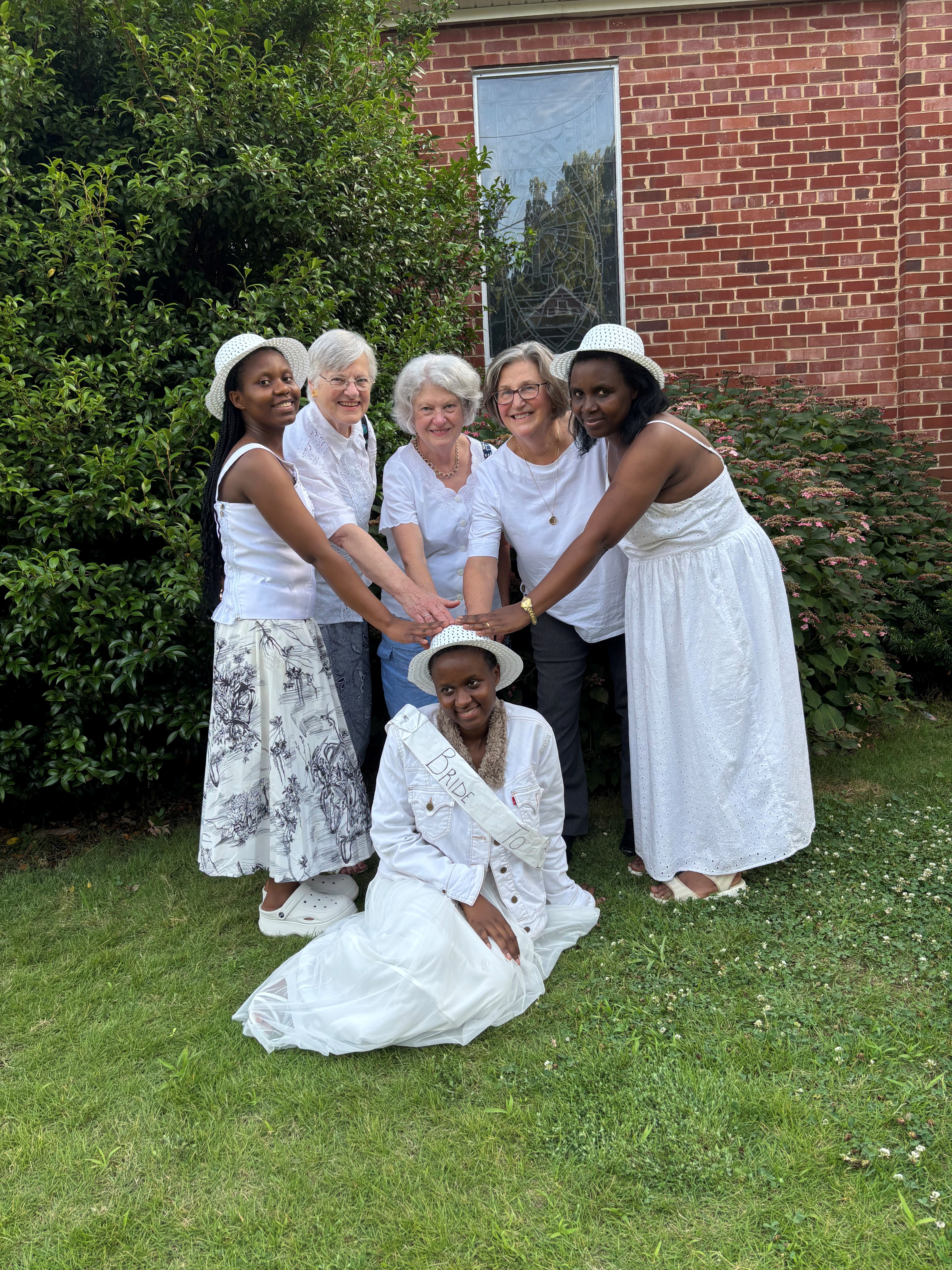
Law
Dear Friends,
One of the most fascinating classes I took in seminary was about first century Judaism. A Rabbi/Professor taught the course and it gave me a very different appreciation of the religion that shaped Jesus. I also got insight into some of the ways Christianity - once it could rightly be called a religion of its own - developed in contrast to first century Judaism. In particular, I gained a whole new perspective on “the law.”
We can thank Paul (and later, Luther) for drawing a sharp contrast between “law and gospel” as well as between “works and grace.” And I get why the distinction is important, so don’t jump to report me to the doctrine police! I just think there’s at least a little more gray area that we sometimes admit. As we prepare for Sunday’s focus on Psalm 19, lemme make two observations in favor of reclaiming reverence for the law.
First, both Jews and Christians aim to please God. Is that fair? Our Jewish kin do that by following the Law; Christians try to please God by following Jesus. Second, as the words of Torah are central for Jews, Jesus the living Word is central for Christians. For all the differences between us, starting with that crucial similarity/crossover/connection between Jesus and the Law might oughtta encourage us to pay a little more attention to Torah. (Kinda like the man in the photo above.)
Psalm 19 is essentially an ode to Torah. The Psalm ends with the words I pray prior to most every sermon I preach: May the words of my mouth and the meditations of our hearts be acceptable unto you, O Lord, for you are our rock and redeemer. There’s a connection between that prayer and the meditation on the Law that precedes it. I’ll be working on that connection as I prepare this week’s sermon.
See you Sunday.
Peace,
Photo by Aharon Luria on Unsplash

Mountains
Dear Friends,
I used to think Raleigh was in the mountains.
Even though I was born here in Raleigh, most of my growing up happened in Wilmington, where the highest elevation was probably a speedbump in some obscure corner of town. Or maybe atop one of the sand dunes at Wrightsville Beach. (Actually looked up “highest elevation Wilmington NC” and it turns out that spot isn’t a speedbump at all, but an intersection just down the street from Mom’s house. Who knew?!)
My parents had friends here in Raleigh, though, so we’d make the trek up here every once in a while to do some shopping and visit the Edwards family at Cheviot Hills Golf Course. Of course there was no I-40 at the time, so it was 421 all the way, with a stop at Stephenson’s BBQ in Willow Spring (at least that was the case if Dad was driving).
It was along about Willow Spring that I thought we’d arrived in the mountains. (I know, I know.) Be assured that I had, indeed, absorbed the content in middle school geography; I knew coastal plain vs. piedmont vs. mountains, right along with the foothills - sandhills distinction, but in real life, those designations meant nothing. (That’s my excuse, anyway, and I’m sticking to it!) Turns out the rolling hills of the piedmont have a dizzying effect on someone who thinks a sand dune is tall.
I suppose it was my first high school ski trip that exposed me to the NC mountains. Then that “see every country in Europe in twelve days” trip after high school introduced me to the Alps. It wasn’t until after undergrad that I got a glimpse of the Rockies and the Sierra Nevada. Mercy!
Talk about dizzying heights! There is something about mountains - real mountains - that changes the way we see everything. There is a grandeur, a permanence, a reverence about a mountain that is nearly unequaled. (Though I’d say that the ocean evokes some similar characteristics, even if that’s in a whole different way. But I digress.)
“I to the hills will lift my eyes,” Psalm 121 begins. I wonder what the Psalmist saw in those hills? What do you see when you see dunes or hills or - better yet - mountains?
See you Sunday.
Peace,
Photo by Ivana Cajina on Unsplash

Sermon: Jacob
Note: Since weather precipitated cancellation of worship on 2/1/26, the day’s sermon was posted to the blog for any who’d be interested. As a rule I’m not inclined to post sermons online. Lots of reasons for that, but chief among them is that I typically write sermons for the ear and not the eye. In fact, I’ve been known to use my voice and facial expression to indicate the exact opposite of the words on the page! So, in reading some sermons, the words you’d read could come across in a very unintended way. (Furthermore, I throw every rule of grammar to the wind when I write sermons and that comes flying in the reader’s face, while hearers actually understand better when grammar’s ignored.)
This particular sermon is a narrative one and I did my best to minimize the risks of misunderstanding. So, if you’re inclined, enter into one version of how Jacob’s dream in the wilderness might’ve come about. -LFWH
******************
You know, one person’s miracle can be another person’s absolute nightmare. That was the case for me regarding a family story about my father and grandfather. They thought it was such a wonderful story of the Holy One’s providence; for most of my life I thought of that story as anything but providential. One night I slept on a rock, though, and my perspective changed – at least my perspective about the Holy One changed.
******************
My name is Jacob. My father was Isaac. And my grandfather was Abraham. Maybe you know the very story I mean. My father’s version – Isaac’s version of the story goes something like this:
“One day the Holy One summoned my father Abraham and he replied, ‘Here I am!’
“Then the Holy One said, ‘Take your son, your only son Isaac, the son you dearly love and offer him as a burnt offering on the place I will show you.’”
[Every time father would tell that story I’d wrestle with those words. What kind of god would ask such a thing? How can you call such a one good? But the story was important to my father, so I’d endure it. Then, Father would carry on...]
“Your grandfather Abraham arose early the next day, saddled his donkey, then gathered up a couple of servants and of course me so he could do the Lord’s bidding. He cut up wood for the offering and we all set out.
“It was a three-day journey before we reached the place the Holy One intended for us. Our journey was a quiet one, somber even, yet at the time, I didn’t know why. I kept my head down and my feet moving.
“When we finally reached the place that the Lord had shown him, Grandfather Abraham told our companions to remain with our pack animal, that he’d take me and we’d go a bit farther to worship. Then he took the wood and laid it across my shoulders for me to carry while he carried the torch in one hand and a knife in the other.
“As we walked toward the clearing, I asked my father where the lamb for the sacrifice was and he assured me that ‘the Lord would provide.’”
[Of all the times my Father told that story, he never said that he fought Grandfather Abraham as he was bound and placed on the very firewood that had once laid across his shoulders. And he never would tell us what he was thinking as he lay atop that pyre, waiting for whatever would come next. Instead, my Father would go straight on to say...]
“As the sacrifice was about to begin, the Holy One called out to my father again, ‘Abraham! Abraham!,’ and Father answered, ‘Here I am.’ Then the Lord told him not to harm me, that his fear of the Holy One had been proved.
“No sooner did the Lord stop speaking, but Father saw a ram. The Lord provided indeed!”
******************
For my father, Isaac – the very one who carried that firewood, who laid bound on that sacrificial pyre, who waited silently while his father Abraham spoke with the Lord, who no doubt wept with relief when that ram appeared – for my father, Isaac, that is a story of God’s providence and goodness and blessing.
It was somehow a test that my grandfather passed – and with apparent flying colors – because afterwards, an angel of the Lord called out to Grandfather Abraham to reiterate the covenant the Lord had made with him: “Because you have done as I asked and have not withheld your son, your only son, I will indeed bless you, and I will make your offspring as numerous as the stars of heaven and as the sand that is on the seashore. And your offspring shall possess the gate of their enemies, and by your offspring shall all the nations of the earth gain blessing for themselves, because you have obeyed my voice.”
Father would absolutely glow when he’d say that last part. I suppose he was always proud that Grandfather Abraham had obeyed the Holy One, even to the point of being willing to sacrifice his son. And I suppose Father might even have been proud that he’d had some part to play in the Lord’s test of Grandfather Abraham – he’d been the sacrificial lamb after all.
I could not come to terms with that test, though. I wasn’t able to celebrate Grandfather Abraham’s fidelity to the Holy One. And I couldn’t find a way to bask in the glow of my father Isaac’s rescue from the sacrificial pyre. For as long as my grandfather was alive and for as many years as I’ve heard my father tell that story, it’s been a record of a miracle for our family legacy. But to me, the whole business was an absolute nightmare. That is, it was a nightmare until the night I made a rock my pillow.
******************
There’s not time today for me to tell you how I became the one to receive my father’s blessing.
Though we were twins, my brother Esau was born first; he was meant to have the rights of the firstborn son. Let’s just say that I was chasing at Esau’s heels from the day of our birth, and I closed in on him on the day that I persuaded him to sell me his birthright for a single meal. I finally caught him for good when I conned our father into giving me the sacred blessing that rightly belonged to my brother.
Esau was, of course, furious; he even swore to kill me. Father sent me to uncle Laban’s house in Haran “so I could find a wife”; I expect my mother encouraged the decision in order to keep me out of Esau’s reach. I could not get out of there fast enough; I’m the better schemer of the two of us, but Esau’s the better huntsman. Get him mad enough to forget his better sense and Esau would take me out in a skinny minute.
******************
It took me weeks to get to Haran. It was quite a journey, and I mean that in more ways than one. Early in the trip I stopped in what seemed to be the middle of nowhere. The sun had set and I was bone-tired. Best I could do for a pillow was to find a curved-out stone. Even so, it did not take me long to fall into a deep sleep.
The dream I had that night made me wrestle with, well, everything. It made me re-visit all that had been promised to my grandfather Abraham. It made me think all over again about the near sacrifice that almost ended my father Isaac’s life long before I was ever born. And it made me re-consider the very nature of the Holy One’s presence with us.
You see, in the dream I saw some sort of pathway – some have called it a ladder, others have said stairway – all I can say is that I saw a clear, open, busy route between heaven and earth. I was intrigued, even as I slept.
Apart from the pathway itself, I saw messengers from the Holy One – angels? – travelling to and fro along that earth-to-heaven incline. (Who knows, maybe one those messengers even brought the very dream I had that night!) In the weeks of travel after the dream – and in the many years since then – I have continued to wrestle with the notion of holy messages coming to us by way of that route between heaven and earth.
There was more than that, though, in my dream. Beyond the pathway and beyond the messengers, I’d always thought that the Holy One was well-protected from everything going on in the realm of creation. I mean, only someone who was insulated from the pain of human life could require the sorts of things the Lord once required of my father and grandfather, right?
My thinking was that it would be better to have a transcendent, disconnected deity-in-a-bubble who simply didn’t realize the anguish, heartache and agony Abraham experienced in preparing to sacrifice his son’s life – or didn’t care. Better to think of the Holy One as too far removed from Isaac’s terror, panic and horror as he lay on that pyre than to think the Holy One meant to scare my father half to death. Yup, if I ever made sense of that story at all, it was by thinking that the good Lord – sequestered away in some heavenly realm – simply didn’t realize the great price attached to the requirement he set before my grandfather.
So, the well-travelled pathway in that night’s dream absolutely unwound all my thinking about the Holy One being holed away in some heavenly hideaway. At the very least, the dream made me realize the Lord’s not as far removed from human suffering as I’d long thought.
Yet the most compelling part of the dream was that it moved beyond thinking about the Holy One being present; I also experienced the very presence of the Lord that night!
******************
Who’s to say where a dream ends and actual experience begins? All I can say is that when I awoke, I was sure I’d been visited by none other than the God of my ancestors. No sooner did my eyes flutter open than these words were on my lips: “Surely the Lord is in this place – and I did not know it!” That sensation – no, that palpable assurance – made me think differently about what made a place holy and how such holiness is tied to the very real presence of the Lord!
That was my conviction upon awaking, anyway, and it made the dream I’d had seem even more real. In the dream, it wasn’t just that pathway linking heaven and earth, and it wasn’t just those angels seeming to travel that route carrying messages back and forth, it was the direct presence and address of the Holy One that came to me in that do-i-even-keep-calling-it-a-dream?
I tell you truly, the Lord of my ancestors, the very one who made heaven and earth, none other than the God of my grandfather Abraham and the God of my father Isaac, the Holy One stood by me and spoke. directly. to. me. The Holy One reiterated the covenant promises exactly as my father and his father before him had heard them delivered. Promises about land for our people, descendants for our tribe and blessing for all the families of the earth. They were words I’d heard about for my whole life, but I was hearing them directly from the very One who’d made such promises! It was not just a dream; it was as real as I am real and standing here.
Before that – what, encounter? meeting? manifestation? – before that experience was over, the Holy One said words I needed to hear even more than those covenant words. Into the most tender, obstinate, angry, broken part of my being, the Lord of the universe said, “Know that I am with you and will keep you wherever you go, and will bring you back to this land; for I will not leave you until I have done what I have promised you.”
“I am with you and will keep you wherever you go.” Grandfather Abraham must have had that conviction when he hauled my father out into the wilderness for that test. And my father, Isaac, must have shared that conviction since he, too, was able to honor and call upon the Lord after all he endured. I cannot imagine more comforting words and now I cannot imagine a life of faith without that promise!
I marked the place of my dream as a holy place, because the Holy One broke into my life on that spot. And as I resumed my journey, I did the best that I could to commit myself and my way to the God of my ancestors.
******************
My life’s journey was not always easy after that day; I was never going to be a perfect human. In fact, I’d go on to wrestle with the Holy One, with my family and with the legacy that found me on more than one occasion.
I must tell you, though, that my encounter in the night was a crossroad for me. My life has unfolded over so very many miles since then. I made a life in Haran and eventually made my way back home. I have been blessed with sons – some who inherited the best of me and others who inherited my more wily traits. At one point I thought I’d lost one son, but he ended up saving our family even as he drew us away from the very home the Holy One had promised us! But that is a story for another day.
My prayer, as my end draws near, my prayer is that all who come after me will be able to confess with me, “the steadfast love of the LORD never ceases, his mercies never come to an end; they are new every morning; great is your faithfulness. ‘The LORD is my portion,’ says my soul, ‘therefore I will hope in him.’”
In the name of the Father and of the Son and of the Holy Spirit. Amen.
Photo by James Handley on Unsplash

Happy
Dear Friends,
Last week’s post ended with this paragraph:
“What’s wild to me is that I’m pretty sure (and scholars I’ve been reading would corroborate) that the actual text in Genesis has something else entirely in mind! Circle back to the image (and the translation in paragraph 1 above) and see what you think the “something else” might be. I expect I’ll head in that direction in the sermon. (Yup, the sermon that may never see light of day because snowmageddon appears to be on the way!)”
As it turned out, snowmageddon 2026 wasn’t all it could have been (at least not for us; mercy, the reports from elsewhere in the country!)
At some point in the lead-up to Sunday, Terri and I had a chat about the plan for February 1 in light of the January 25 cancellation. We decided to push our January 25 plan forward a week and skip our planned focus for February 1. In real life that means last week’s sermon (and choir anthem) will see the light of day.
When the Thursday Morning Bible Study took up the text intended for February 1 (Psalm 118.1-2,19-29), we ended up in a conversation about happiness. Effectively, “can you be happy-slash-content even when you’re not particularly happy-slash-grinning.” I expect that’s a crucial consideration for people who follow Jesus, so stay tuned for that focus in a future week! (Actually, with the Beatitudes a our focus for Lent, be ready for a whole season of that focus.)
Meanwhile, I was clearing out digital files yesterday and ran across a note I wrote several years ago to someone who’d just been moved to hospice care. I dared to give that friend a to-do list! I can remember when the to-do list came to me; I was wondering what in the world I was going to say to that person as real encouragement. The list practically fell from the sky (maybe a heavenly messenger brought it down a ladder?) and it strikes me as one potential answer to the question, “How can you be happy even as you face your death?”:
- Laugh a little – even in the hardest of places, I pray joy always finds you.
- Cry a little – because this means you’re spending sacred time with people you love.
- Read a little – or listen to something going on ‘out there’ so that your world stays wide.
- Visit a little – and stay connected to friends and others who make up your community.
- Eat a little – even as you begin to imagine the Great Feast, let every bite be a foretaste of that banquet.
- Splash a little – whether it’s washing your face or soaking in a tub, whenever water touches you, remember that baptism promises new life every. single. day.
Re-reading that list today, I might add a couple of things – “Share a little” and “Listen a little” come to mind – but for the most part I expect these rough measures get us closer to “happy” than the happiness factors our culture would have us adopt.
What else would you put on your happiness to-do list?
See you Sunday.
Peace,

Stairway to Heaven
Dear Friends,
So, click here to see the full photo in this post's header. Pretty amazing, huh? It’s from the ceiling of the Monheim Town Hall in Monheim, Bavaria, Germany. The gilt letters are Hebrew; here’s a translation (not my translation, btw, but one provided by the photographer):
- The sun contains the words וְהִנֵּה יְהוָה נִצָּב עָלָיו וַיֹּאמַר (And, behold, the LORD stood beside him, and said).
- The ray coming from heaven reads וְהִנֵּה אָנֹכִי עִמָּךְ וּשְׁמַרְתִּיךָ בְּכֹל אֲשֶׁר-תֵּלֵךְ (And, behold, I am with thee, and will keep thee whithersoever thou goest).
- Jacob exclaims מַה-נּוֹרָא הַמָּקוֹם הַזֶּה (How full of awe is this place!)”
That’s pretty much Sunday’s scripture lesson in a nutshell.
Say the words “Jacob’s Ladder” and I bet at least one of three cultural interpretations come to mind: Some might remember the Jacob’s Ladder string trick; others might think of Led Zeppelin’s Stairway to Heaven; yet others will recall the Spiritual, We are Climbing Jacob’s Ladder. Kudos to you if you anticipated 3 out of 3; I had to have a reminder for the Led Zeppelin connection. (And if I’m missing a cultural reference, drop me a line!)
Having mentioned the string trick, nerdy me wants to say that the “ladder” Jacob saw in his dream was more likely to be something more closely resembling a “stairway.” (At the Thursday Morning Bible Study we imagined an up-and-down escalator!) Walter Brueggemann suggests it was probably a ziggurat - a terraced temple structure; think of a flat-top pyramid with terrace-like “steps” on the sides - that informed the dream image.
Stairway to Heaven and We are Climbing Jacob’s Ladder move beyond thinking about the structure itself. Each song, in its own way, interprets the image for those who sing or hear the respective songs. For all of the apparent controversy surrounding the Led Zeppelin song (I’d totally missed all that!), a prevailing interpretation out there in internet land is that the song contrasts one spiritual seeker who wants to purchase a straight pathway to heaven, with another seeker who follows the less-straightforward but perhaps more rewarding pathway that involves following the piper. (I’m kinda tempted to capitalize “piper” for our context, but I’ll resist.) So, Stairway can be understood as having some sort of spiritual path in mind.
We are Climbing Jacob’s Ladder might well have a spiritual path in mind, too, but there are more layers to that pathway in the Spiritual. As an African American Spiritual from the late 18th/early 19th century, it’s a resistance song - a source of encouragement for enslaved people hoping for freedom. As the song builds, hope grows. Read (or recall) the verses and you’ll see/hear even more: As the song “climbs” so does the singer grow ever stronger in Christian discipleship.
What’s wild to me is that I’m pretty sure (and scholars I’ve been reading would corroborate) that the actual text in Genesis has something else entirely in mind! Circle back to the image (and the translation in paragraph 1 above) and see what you think the “something else” might be. I expect I’ll head in that direction in the sermon. (Yup, the sermon that may never see light of day because snowmageddon appears to be on the way!)
See you Sunday.
Peace,
Photo Credit:
EA210269, CC BY-SA 3.0 <https://creativecommons.org/licenses/by-sa/3.0>, via Wikimedia Commons

Work in Process
Dear Friends,
(Rambly post ahead. I am likely to revisit this on 1/14. Unless I run out of time. Again.)
So, I’m a cross stitcher. And a seamstress. An occasional quilter, knitter, felter, embroiderer, weaver, crocheter, [the list goes on]. A fond and vivid memory is of my maternal grandmother teaching me how to tat! (She’d also inspect my stitching - whatever sort of stitching I might have been doing at the time - and on a fairly frequent basis, encourage me to pick out the uneven stitches and try again. Somehow she could tell me to do that and I was quite happy to improve. Hmm. Didn’t see it coming, but that last sentence will preach by the time you get to the end of this post.)
Pretty much, if it involves thread or yarn or fabric, I’ve tried it. My current needle-and-thread obsession is cross stitch.
Now, I started cross stitching in high school and kept on with it through at least part of undergrad. Then a looonnng hiatus. And I’ve gotta tell you, cross stitching in the 2020’s is a whole different hobby than what I did in the 70’s and 80’s. Now there is a - well I guess you’d call it a sub-culture - on YouTube that’s called FlossTube. In vlog after vlog (as in Video Log after Video Log) people share what they’re stitching and what they’ve finished along with new pattern, floss or fabric acquisitions. Who’d have ever guessed it, huh?! FlossTube.
This time of year folks on FlossTube are forever doing “WIP Parades.” This means adults sharing, as children would for show-and-tell, all the projects (”Works”) they have at an “In-Process” status. Some folks have a handful. Some have dozens. There are some FlossTubers out there with three digits worth of in-process projects.
Today I began to think back to last Sunday’s sermon. I never quite said it directly, but it was a sermon about humility. By the time of the Charge and Benediction, I suppose you figured that out. Felt like the humble thing to do, after preaching a sermon on humility, to confess that I work hard at - and regularly fail at - humility. Mercy. (It was the same stitch correcting grandmother - we called her Pie - whose constant prayer was “Mercy.”)
As I was watching a WIP Parade Sunday evening (while getting in a few stitches of my own!), I started to think of all of us as as many WIPs. Works In Process. Some of us a few “stitches” (or years) into this thing called life and faith; some of us closer to the end of the project. But you know, even when every stitch is finished, we’re still pretty much “in process”: Imperfect. Not fully finished. Some parts of us not exactly to plan.
Wonder what would happen if we were to have a WIP Parade at church? Flip the prayer of confession, maybe, so that we silently read the printed confession then dared to show-or-tell each other some part of us that’s most definitely still a WIP? (Hmm. Sounds like Ash Wednesday to me.)
I don’t know that there’s space enough in the blogosphere for me to parade all the parts of myself that are most certainly still Works In Process. But humility might well be close to the top of that list.
What WIPs do you need to parade, even if only to yourself?
See you Sunday.
Peace,
Photo by yours truly
I’m currently stitching this reproduction sampler titled Ann Grimshaw 1818, charted by Scarlet Letter.
In FlossTube fashion I feel compelled to add “stitched with Missus Seda’s silk on 40-count Weeks Dyeworks Havana.”
(Just decided that I WILL pick out (for the THIRD time, btw) the stairstep part on the right where you can see the needle. Mercy.)

Children
Dear Friends,
So, this week we’ll look at the second of James Howell’s 40 Treasured Verses. And the particular verse of scripture for this week is this: “Unless you become like children, you will never enter the kingdom of heaven.” (Matthew 18:3)
Choosing a photo to represent that verse landed me on the three cherubs at the top of this post. I couldn’t help but grin when I saw the photo; their unbridled joy is absolutely contagious! There’s more, though:
- It looks like they’ve been playing hard;
- The children seem oblivious to who’s older or younger, more or less knowledgeable;
- Unless I’m mistaken it seems they’ve enjoyed a snack together and are not at all worried that there might be remnants around their mouths;
- And in the story I’ve invented to go with the photo, they had a spat about something a couple of hours ago but have so forgotten the argument that they’re now taking a break from playing in order to share a group hug.
Perhaps, if we want to show the world what the kingdom of heaven is like, we might take a cue or two from these children. In particular:
- Those of us who value hard work need to remember the value of play;
- Those of us who are driven by entitlement, privilege or accomplishment need to let go of some presumptions about who’s important and who ought to be in charge;
- Those of us who are anxious about appearances might do well to cultivate a little more of a “let it be” attitude;
- Those of us who are eternally keeping score could stand to drop the pretentiousness (or the self-righteous/martyr/victim act) and give reconciliation a try instead.
Most of all, if the church is meant to be a signpost of the Kingdom, love and joy must be the first things that anyone notices when they encounter our community.
See you Sunday.
Peace,
PS: So, when I sat down to write this post, I was wondering whether to write about the upcoming Sunday focus or come up with something New Years-y instead. Realizing that when I write “those of us” I’m probably talking about myself, I think this post about Sunday might also suggest some resolutions I’d do well to consider!
Photo by Nathan Dumlao on Unsplash

Light
Dear Friends,
Warning: Nerdy post ahead.
Insofar as there is tension between faith and science, I suppose there are several potential resolutions. One can set aside faith as incompatible with what rationality would have us understand. Or one can bend or ignore scientific facts in order for faith to remain intact. I tend to prefer to have my cake and eat it, too.
So, when I’m reading scripture, for example, I don’t expect scientific precision from the text. More specifically, that scripture doesn’t seem to mention Pteradactyls doesn’t make me question the veracity of the fossil record. I’m not bothered that the events described in Genesis 1 might have occurred over more than 168 hours. And I’m ok with miracles - especially the resurrection of Jesus - being, well, miraculous. There’s plenty of room in science for us to be surprised every now and again.
The tangent of the day began with a quiet visit to britannica.com to read up on light. And, as I was reading, the science triggered the sort of awe that more often comes from faith! (Which, imho, is the very best resolution of the faith-and-science debate - invite the science to enhance faith!)
Here’s the paragraph that triggered that response: “No single answer to the question ‘What is light?’ satisfies the many contexts in which light is experienced, explored, and exploited. The physicist is interested in the physical properties of light, the artist in an aesthetic appreciation of the visual world. Through the sense of sight, light is a primary tool for perceiving the world and communicating within it. Light from the Sun warms the Earth, drives global weather patterns, and initiates the life-sustaining process of photosynthesis. On the grandest scale, light’s interactions with matter have helped shape the structure of the universe.”
Light seems so simple, doesn’t it? But it’s visible and it’s invisible; it has properties similar to waves but also properties more akin to discrete chunks of matter. Light opens us to explore the tiniest of particles and the ever-expanding breadth of the universe. It enables a peek back to the earliest milliseconds and pushes us to imagine the very end of the age. Light. Hmm.
“In the beginning was the Word, and the Word was with God, and the Word was God. He was in the beginning with God. All things came into being through him, and without him not one thing came into being. What has come into being in him was life, and the life was the light of all people. The light shines in the darkness, and the darkness did not overcome it.”
See you Sunday.
Peace,
Article: https://www.britannica.com/science/light
Photo by Casey Horner on Unsplash

“But it’s good for you!”
(Sorry! Late this week. And probably not very related to the sermon this coming Sunday...)
Dear Friends,
So, I have two food rules. One, I don’t consume offal. I LOVE giblet gravy with my turkey, but I will eat around every single liver, gizzard or heart particle that’s in my serving. (I remember one time as a kid when Mom gave me liver and told me it was steak... still scarred by that memory!) I do NOT consume organ meats. Full stop.
Two, I don’t eat cooked leaves. Now, I will eat the occasional serving of cooked cabbage a la Bubble and Squeak, maybe a slice of spinach quiche (if the green-to-golden ratio is low enough) or perhaps a wilted spinach salad (so long as there’s lots of sweet, hot, bacon-y dressing on top); but please, for the love of all that is good, please do not put a pile of boiled spinach, collards, turnip greens or their kin on my plate. No amount of “But it’s good for you!” will convince me to dig into a pile of cooked leaves.
Sometime this week I heard myself saying to someone (my memory’s not at full capacity these days, so I have no idea who I was talking to) that Advent is hard. And I’m not sure that my next sentence was literally, “But it’s good for us!” but the sentiment fits with my vague recollection of the conversation. Advent is hard. And Advent is good for us.
We are not so good at waiting, are we? It would be so much more festive to skirt straight from Thanksgiving to Christmas and not have to deal with the not-so-festive tenor of Advent texts. Beyond the waiting challenge, Advent words from the prophets, John and Jesus are hard words to hear. As George said in a sermon a couple of weeks ago, there are no “Merry Christmas, You Brood of Vipers” cards out there! It takes hard work just to listen to Advent words and even more hard work to sit with Advent words long enough to begin to understand them. (Then, when the meaning finally dawns, Yowza!) And that’s before mentioning how busy and distracted we all are this time of year. An already difficult season is made even more difficult because there’s so much going on that there’s not time to sit with those hard words and wait for them to do their challenging work in us.
But (and I expect you know what’s coming) it’s good for us to observe Advent.
Truth be told, the capital-C Church’s primary posture is Advent. We are always always always waiting for the fullness of Christ’s kingdom to come. “Advent” means coming and, in the season of Advent, the Church acknowledges that it is always waiting for the coming of Christ.
The Church’s very existence is wedged in between the already of Jesus having come to us as the Christ child and the not-yet of Christ’s return in glory. We are meant to have one eye on the ministry we’re doing to proclaim that Christ has come and is coming yet again. And we’re meant to have the other eye on the horizon, watching, waiting, longing for his return.
Good news: There are some things that help make the hard work of Advent at least a little more palatable. First, the “already” reassures us for the “not yet.” Christmas reminds us that God made good on the promise to send us a savior! So we can have confidence as we navigate Advent - confidence that our waiting is not in vain. Second, Easter screams that nothing - not even death itself - will ever thwart God’s plans. More confidence right there, huh?! And third, the Advent themes of hope, peace, joy and love - filters, really, for our interpretation of Advent scripture readings - are reminders that what is hard for us might actually be good for us - and might even be a gift for us!
So, true confession: I have zero words on the so-called “page” that will become Sunday’s sermon. (Yikes!) But I think I just reminded myself that love will be the key for making Advent 4 into something delectable!
See you Sunday.
Peace,
(BTW: Don’t even try to tell me all the ways a pile of cooked leaves - not to mention icky offal - can be made tasty enough for consumption!! )
Photo by Louis Hansel on Unsplash

Communion bread
Heads up: lots of words ahead... a Thank You note at ¶1 and then a blog entry at ¶4
Dear Friends,
First: Thank you! For your prayers, your texts, your cards, your e-mails, your meals/treats/goodies - all of which convey your care - thank you, indeed. I’ve often told mourners that the church will “crowd surf” them through the disorienting early days of grief (and then some!); now, over the past week or so, I’ve felt y’all crowd surfing us as a family. So, thank you, thank you. (Note: If the notion of “crowd surfing” is new to you, see below for a photo... Which makes me want to add that I have yet and hope never to be the in-real-life object of crowd surfing, so I mean it in a purely figurative sense of being supported, sustained and encouraged through a difficult season!)
Extra thanks to George Spransy for stepping in for me for two Sundays in a row. When I got that wee-hours-of-Sunday-morning phone call I was trying to figure out how to get down to Wilmington and back again in time to preach on November 30. (In hindsight, I know that’s crazy talk; in my defense, it was 2 am!) Once I saw a bulletin and realized that George would surely be at church since he was listed as Liturgist, I knew he would gladly cover for me and I could relax into knowing worship would proceed without me. That freed me to keep my undivided attention on my Mother that day. Then, when it became clear that a family graveside service would happen this past Saturday, I was glad all over again for George’s willingness to step in for me once more on December 7. Thank you, George!
Finally, I want to thank NRPC’s staff, Session and Diaconate (though they are not the only ones to have pitched in over the past nine days) for the ways they’ve stepped in. In particular, Rebecca and Terri shared news and handled needs in ways I’m only now beginning to comprehend. And I’m grateful to our family Deacon, Fran Lawrence, for her good care for René, Ben and me over the past week or so. Thanks, too, to Deacon Margaret Albert for her solo leadership of the Surviving Grief in a Season of Joy workshop that I was supposed to lead with her on the 30th. Finally, NRPC’s Elders have kept the work of the church moving forward into this Advent season - while keeping my inbox nearly message-free in the process. Thank you, one and all.
Now, on to the blog entry. I’m not sure this entry will have anything to do with the sermon for Advent 3 on December 14, but I do want to share an Advent image I have been thinking about and wrestling with as I’ve leaned into my grief over my Father’s death last week.
More than a decade ago I attended a worship workshop that explored connections between Advent and Lent. I almost didn’t even attend the workshop, because if I’m honest, I kinda find the mash-up rather unsettling. For example: One participant (or maybe she was a leader?) at the workshop shared something she’d tried at a Christmas Eve communion service. In particular, she said that, during the words of institution on Christmas Eve, she’d cradled the communion loaf in her arms as though it was baby Jesus. So, the babe-in-arms image was mashed-up with “This is my body, given for you,” you know?
I have no idea whether my face revealed my reaction to other workshop attendees, but, at least on the inside, my nose was wrinkled up, my head was shaking “No,” and I was thinking, “I don’t like that!” On Christmas Eve I’m simply not ready to think about that just-born child who was God’s love made incarnate as the crucified, dead and resurrected Lord. Of course the connection is there on Christmas eve (incarnation is the beginning of it all) and the connection is unmistakable when we come to the Lord’s Table on Christmas Eve - in birth and death, Jesus is love incarnate - but somehow the idea of cradling that loaf pushed me from manger to cross a little too explicitly a little too quickly.
As I sit here writing, I’m not even sure what has pushed that unsettling image to the front of my mind this last week. Maybe it is because I’ve experienced in a new way the hair’s breadth of distance between life and death. My Dad was 89 when he died on November 30 and his declining health meant that his death wasn’t absent from our radar, yet we weren’t exactly anticipating it, either. And, in good Advent fashion, we’re meant to stay alert to the fact that the “end of the age” might well be as close as our very next breath. Maybe the communion-bread-baby-Jesus somehow embodies that fine fine line between life and death?
Or, maybe it’s the different sort of grieving one does when the deceased is someone who gave you life? People (and my pastoral studies) have long told me that a parent’s death is different from any other. And what I’ve experienced when grandparents, aunts, uncles, cousins and friends have died is entirely different from my experience of my Dad’s death. Not to mention, I’ve sure thought a lot about my Dad as a child this week as I’ve thought about how he became the person he was. So maybe that Advent-Lent mash-up of baby Jesus with the crucified, dead and resurrected Lord is somehow coming to mind because I’ve been connecting Charles the child and my deceased Dad all week long?
Or maybe it is as simple as recognizing that our practice of bearing witness to resurrection means that there is life and there is death and, by the grace of God, there is life again. Maybe that’s the ultimate mash-up of Advent and Lent, Easter and Christmas - that it all begins with life and it all culminates in life, too? ’Cuz at the core of the Christian faith is the affirmation that we can face our own mortality because we know death does not get to have the last word!
Hmm. Not sure I’ll cradle the communion loaf in my arms on December 24, but I do expect I’ll still be thinking about that mash-up when I’m proclaiming good news from behind that Christmas Eve communion table. Until then, I hope you’ll consider how the peace, hope, joy and love of Advent find their culmination in an occupied manger, an empty tomb and the long-anticipated age to come.
See you Sunday.
Peace,
Photo by Holly Spangler on Unsplash

Noah
Dear Friends,
Confession: I love an “excessive” Christmas tree. Meaning, I like a Christmas tree that’s so full of ornaments that you can’t quite see the tree itself. Every branch needs at least one ornament and I think most branches should hold multiple ornaments! In another direction, Christmas tree excess means that ornaments don’t necessarily need to be “Christmas-y” in order to go on the tree. There’s a set of Alice in Wonderland characters on our tree, also a set of miniature Jane Austen novels. The perfect tree reflects the past, the present and the future; it’s somehow a scrapbook and, I don’t know, a compass, maybe, pointing to the manger and beyond? (Hmm. I think I just found my sermon right there!)
Once upon a time I was a Noah’s Ark collector, so there are several arks in our Christmas ornament collection. (The photo grounding this blog entry is from someone else, but I do have that same ornament in my collection!) If I’ve ever thought about why there are several arks on our Christmas tree, I suppose I would’ve said, “Because people gave them to me when that was a thing I collected!”
This coming Sunday’s text is a reminder that there’s more going on than that: Noah - and even more so, other people in the days of Noah - have a clear role in Advent. While Noah was preparing for the flood that was coming, Jesus says people were “eating and drinking, marrying and giving in marriage” rather than getting ready for what was ahead. That didn’t work so well back in the days of Noah, huh? (And if that doesn’t make sense, take a look at Genesis 6.)
It’s gonna be a little different, hanging those arks on the tree this year: A little less, “aww how cute!!!” and maybe a little more, “am I getting ready for the right thing?”
Happy Advent?
See you Sunday.
Peace,
Photo by Robert Thiemann on Unsplash

con-fur-MAY-shun
Dear Friends,
Confession: I am wont to overthink. In my own defense, I expect that part of my calling as a pastor is to overthink on behalf of a congregation. Ultimately, that’s at least part of the job for the preacher part of my calling as a pastor: I’m sorta paid to overthink about scripture, listen for what the Spirit says and then attempt to help scripture say something compelling for the lives of 21st century Presbyterian-leaning folks who decide to listen in.
So, overthink with me for a minute or two about this word confirmation.
Of course, one of the things I enjoy about being a professional over-thinker is that I can run rabbit trails in the OED on occasion. And get paid for it! This week that adventure revealed that the oldest English use of the word dates from 1520. The related definition is this: “The action of making firm or sure; strengthening, settling, establishing”.
I kinda like that definition. It makes me expand on my own definition of the rite of confirmation in the church. My off-the-cuff, instinctive definition of confirmation would be “to confirm the promises made on your behalf at baptism.” Liturgically speaking, that definition works; this Sunday one set of parents will present their baby for the sacrament of Baptism even as NRPC’s confirmands will, well, be confirmed. Getting to the point: the parents and the confirmands will profess their faith by answering the exact same questions. Only difference will be that the parents are presuming to make that statement on behalf of a child who cannot speak for himself while the confirmands will be speaking for themselves.
Beyond the “I do”s and “I will”s that the confirmands will say, they are establishing a baseline for their life of faith. They are settling - at least for the time being - questions they have about belonging to God, becoming a disciple, believing that “in Christ God was reconciling the world to himself, not counting their trespasses against them, and entrusting the message of reconciliation to us.” (BTW, that’s Paul, Second Letter to the Corinthians, chapter 5 at verse 19.) Our confirmands have been doing the work of strengthening their response to the Spirit’s call to discipleship; they are firming up their relationship with Jesus; they are growing more sure that God who created all things loves them exactly as they are and to the very end of the age. (Somebody say Amen!)
Please come on Sunday to hear our confirmands as they establish, settle, strengthen and make firm and sure their commitment to Jesus. Your presence will be a blessing to the confirmands and their profession of faith is sure to be a blessing to you.
In related news, last Sunday a few folks mentioned that some sort of “Confirmation for grown-ups” (I’m thinking we’ll call it “Re-Confirmation”) would be interesting, so stay tuned next autumn. And someone in the greeting line on Sunday asked for a reminder of the six confirmation themes I mentioned in Sunday’s sermon. Here you go: Reconciliation, Formation, Relationship, Community Stewardship, Service. Back up a paragraph and you’ll find an echo of the Belonging/Becoming/Believing trinity I mentioned.
See you Sunday.
Peace,
Definition: https://www.oed.com/dictionary/confirmation_n?tl=true#8501027
Photo by David Bumgardner on Unsplash (In case you’re wondering, it’s a descending dove bringing with it the very Spirit of the living God to fall afresh on the people of God.)

Planting Apple Trees
Dear Friends,
According to RaintreeNursery.com it takes an apple tree “7 to 10 years to grow from seed to fruit-bearing maturity.” And I’m pretty sure that it’ll take a good bit more work than simply planting the seed (or even a sapling) for such fruit to materialize. (ask me how I know!)
I had to look that timeframe up because of what I discovered on the deutchland.de website, which is a site dedicated to “promoting the image of Germany abroad” for the Federal Republic of Germany.
What I found on that site was a “story about the apple tree. ‘Even if I knew that tomorrow the world would go to pieces, I would still plant my apple tree,’ Martin Luther is supposed to have said. This is just one of many legends about the Reformer that merrily continue to be passed on despite a complete lack of references. Ultimately it probably doesn’t matter whether the nature-loving Luther actually used these words or not. What is important is that they show how much he has influenced German society. Researchers believe that this saying was only attributed to the Reformer after the Second World War. When people lived between optimism and desperation they felt reminded of Luther. Five hundred years after the publication of his Ninety-Five Theses it is again time to take a closer look and show how strongly his life and work still influence us today.
It’s that “people living between optimism and desperation” part that’s relevant as we look toward Sunday. Bluntly stated, Luke 21:5-19 anticipates “the end.” As he teaches, Jesus most certainly has “the end” of the temple in mind, along with the destruction of Jerusalem; in a few more verses that more localized “end” will broaden to “what is coming upon the world” (v. 26). Yikes.
Jesus does not pull any punches in his description of the cosmic and political cataclysms he foresees. With the same urgency, though, Jesus says, “do not be terrified,” “I will give you words and wisdom,” and “not a hair of your head will be lost.” Mercy, what a blend of optimism and desperation.
Another source presents the Luther quote this way: “If tomorrow is the Day of Judgment, then today I want to plant an apple tree.” Can you imagine planting fruit trees in the face of the end of the world? His confidence is shatter-proof; his trust is unshakeable; his hope is profound. I’m glad to visit Food Lion for apples; dear Lord, give me some of Luther’s confidence, trust and hope!
If not an apple tree, what would symbolize faith-filled optimism for you in a season of desperation or desolation?
See you Sunday.
Peace,

Keeping me on my toes
Dear Friends,
So, as a child I really wanted to be a ballerina (probably still do, if I’m honest), even though my body type, right down to the structure of my feet, has worked against me all my life. I’m one of those people who lumbers along; even when I have less girth, I do not move gracefully.
Right about the time I was finally ready to step out of ballet slippers and into toe shoes, I expect my teacher had an honesty sidebar with my Mother. And my ballet career ended before those coveted toe shoes were ever purchased. So now it’s Jesus who keeps me on my toes.
Luke 20:27-40 is on deck for this coming Sunday. And it’s one of the texts a preacher sorta has to tiptoe through: There are SOOO many rabbit trails, SOOO many history-laden aspects to the story and SOOO many ways to miss the point (ha! pun not intended, but I’ll take it!).
Lemme introduce three areas where I was longing for toe shoes in order to tiptoe around challenges in this text:
1) In verse 35, I wish Jesus hadn’t said something that would be translated “those who are considered worthy.” (emphasis mine) Ay ay ay ay ay! I spend so much pastoral energy reminding people that grace is ours even though we most definitely are not worthy. So, when you read that line, try it this way, “those who are considered worthy.” I think that’s where the real point is. (Intended it that time!)
2) The plain meaning of verse 37 is rather elusive. (Ask me if you’re curious; I can sorta see the explanation in my mind’s eye, but I’m not sure I can articulate it clearly!) Suffice it to say, I wish Jesus hadn’t proof-texted Exodus 3:6, which has nothing to do with the matter at hand (resurrection) and, IMHO, results in a rather flimsy argument. (Yup. Just said that I think Jesus missed the point! or at least confused it)
3) Apart from daring to criticize Jesus’ teaching, it’s really the Saducees who are most irksome in this passage. (One wonders whether Jesus intentionally mirrors their irksomeness with an irksomeness of his own?) Who cares whose wife that blessed woman will be when she finally enters into her eternal rest?! So, please tiptoe right past that clever-sounding question. There’s simply no need in wasting time with it. Which is exactly the point Jesus ends up making about the whole encounter. (And that’s three-for-three, in case you’re counting!)
Having played with that word point for way too many words now, I’m asking myself what the point is in this blog entry. Maybe this is it: I’d hope that disciples would worry less about tiptoeing around scripture and instead bring real questions to it. Cuz I’m convinced that there’s more faithfulness in stomping around in scripture than in tiptoeing through it.
What do you wish Jesus never said (or what do you wish he’d said differently)?
See you Sunday.
Peace,

Invisible
Dear Friends,
Lately it seems I’m glad to have been rendered mostly invisible.
Which is probably a passive-aggressive way of saying “I’m soooo frustrated that I seem to have been rendered invisible!” So, let me try to be a little more honest than that first line suggests.
Trying again: Don’t know about you, but on occasion, it’s a gift to feel invisible. For example, I can dash in and out of the grocery store in my “definitely-not-fit-for-prime-time” attire and I no longer feel like people are looking my way with a “what’s she thinking?!” expression on their face. There’s similar invisibility when I’ve been waiting patiently for the clerk but someone whose time is apparently more important than mine “really needs help and now!” And don’t get me started on the lacking common courtesy (in traffic, on sidewalks, at doors, you name it) that seems to be a veritable epidemic of choosing not to see one’s neighbor. I’ve also learned that my opinions on things have never really mattered to many people, so I now see that form of invisibility as freedom to keep my thoughts to myself until and unless they really matter. And after a lifetime of accumulated experience, I’ve realized that our culture wants what’s new and fresh rather than what’s been learned through hard work and a mixed bag of success and failure, so I’m trying to step back at least some of the time and simply let go. (I know. Keep working at that one, Lisa!) Being rendered invisible is hard.
For all of the invisibility that I’m either trying to enjoy or surrender to, I can at least recognize that once-upon-a-time I was not invisible. I had a voice that mattered, a contribution that mattered, opinions that mattered, experience that mattered.
I wonder if Zacchaeus ever felt anything but invisible? I mean, “wee little man” that he was and all. Then, there’s his role/reputation as both a rich man and chief tax collector - did that station in life render him invisible because people reviled him to the point that they looked straight through him? Or was that part of his presence so “big” that you didn’t see him because was sorta everywhere all the time? When I lean into his story - at Luke 19:1, by the way - I even wonder if climbing that tree might’ve contributed to his further invisibility just as much as it helped Z see Jesus? Gotta wonder, at least.
Which makes me think about all the people who’ve always been invisible for one reason or another.
Jesus seems to have seen right through Zacchaeus’ invisibility cloak. He saw, acknowledged, and had supper with Zacchaeus-the-invisible - Jesus sought him out! So, I wonder how I, as one of Jesus’ disciples, need to think a little less about my own invisibility and work a little harder at seeing the people I look past every day.
Who’s invisible to you?
See you Sunday.
Peace,

Generosity
Dear Friends,
So, I’ve never been a open hands/palms up pray-er. As a kid I learned to “fix my hands” before we “said the blessing”. (Listen back to last week’s sermon if “saying/asking the blessing” confounds you.) And I suppose that what’s now an almost ritual part of our Time with the Younger Church - the clap hands together over the head, then “bring it on down” gesture I do with the children - comes from that lifelong habit of a hands closed/palms together prayer posture.
Then there’s my general state of body-consciousness: unless it’s to fetch something from an upper shelf, my elbows are rarely above my shoulders; even when “I’ve got the beat,” I tend not to sway or dance to the music; and, though I might talk your ear off (!), I’m not so likely to holler, clap or whistle to get attention from anyone other than our Dachshunds. Demonstrative postures just aren’t natural for me.
And yet.
There is something compelling about the open hands/palms up posture for prayer (maybe “so long as elbows remain in check”?). It is an expectant posture, one that I can imagine the tax collector in Luke 18:9-14 might adopt - after he’s beaten his chest, anyway. His prayer is for God’s mercy, so he seems to trust that divine mercy is available to him. I can imagine him opening his hands to receive the very grace of God.
I also wonder (or maybe I hope) that those same opened hands then become generous ones. Does he return any funds he might once have extorted? Does receiving God’s mercy make him a more generous neighbor? Do those open hands remain open?
Perhaps I’ll try the open hands/palms up posture during prayer sometime soon. I suppose if I keep my hands gently upturned in my lap my elbows won’t be too terribly out of control.
See you Sunday.
Peace,

Grace
Dear Friends,
Some weeks I have an instinct about where a sermon focus might land. This week - and even after lively discussion of Luke 18:1-8 with the Thursday Morning Bible Study - I’m still a little bit stumped.
Looking for an image for this week’s pledge season focus confirmed my “stumpification.” I plugged in “grace” on the website where I often source free photos. Most of the images were of landscapes with sunshine breaking through clouds. Then there a couple of photos with people: one focused on upturned palms, another emphasized hands folded in prayer on top of an open book that’ probably a bible. Then there were a couple of grace-fully arced plant specimens - wheat in one and maybe larkspur in the other. Little bit of word-art (including a cross ornament with the word grace across it), a stack of books, and one photo that stumpifies me even more than this week’s text.
Then, finding the “Come as you are” doormat image opened a door for me! (Pun definitely intended!) That one brought my focus to verse 7: “Will not God grant justice to his chosen ones who cry to him day and night?” Wonder if “Come as you are” might well point in the same direction that the verse is pointing?
What image comes to you when you try to visualize grace? I’ve got a couple that I’ll probably share on Sunday. See you then.
Peace,

Pledge
Dear Friends,
So, “pledge season” is just around the corner. (Note for anyone new to this blog: Since stewardship is a way of life for Jesus’ disciples, our season for making financial commitments to next year’s ministry at NRPC is “pledge season” instead of “stewardship season.”)
My friend and former colleague, Gary Fulton, will be our preacher on Sunday as pledge season gets underway. If that name’s familiar, you might recall that Gary was here back in June as a liturgist on the Sunday when Pastor Leon Dorleans from Haiti was our preacher. Gary will put Jeremiah 29:1, 4-7 before us and help us contemplate our pledges from a place of gratitude.
I trust Gary will be way more creative than I am, but today I’m wondering if there’s any pledge/promise/covenant/vow/commitment we can make that doesn’t somehow come out of a place of gratitude. Could a Brownie Scout say “On my honor, I will try...” except that she is glad to be a part of the troop? Can someone promise to “tell the truth, the whole truth...” without having at least an inkling of gratitude for a robust and fair justice system? Would anyone say “I do” to someone without being grateful to have them in their life? And would you pledge support to a church’s ministry if you weren’t thankful for what the good Lord has done for you?
Having written that last line, I can practically see a parade of faces - faces of people who’ve made NRPC’s ministry happen and faces of people who’ve benefitted from NRPC’s ministry. There are also names I know from NRPC’s past, but names that go so far back that there aren’t faces attached to them - at least not in my mind’s eye. I’m grateful for each one - the seen and the unseen ones - even as I’m grateful for you, dear reader, because you, too, are part of what we’re doing here at NRPC. Thank you, one and all.
I wonder, for whom or what will you give thanks as you contemplate your pledge?
See you Sunday.
Peace,
Lisa
Photo by Alise Storsul on Unsplash

No rest for the weary
Dear Friends,
Of course, I can’t speak for you, but the recent string of readings from Luke has been, well, a tough go. I’m a bit weary, which probably means blog-readers and sermon-hearers are weary as well.
I realize that I contribute to that “toughness.” For example, I could’ve taken a gentler “found” approach when we read Luke 15 a few weeks ago instead of the “lost” approach I ended up taking in that sermon. No regrets, mind you; I’m just owning the fact that I do have some control over how a particular text gets emphasized.
The last two weeks’ texts have been tough because they have challenged the place wealth stacks up in our “pseudo-pantheon of so-called gods”.* I don’t like having my pocketbook - or my attitudes about my pocketbook - challenged any more than the next person. So those sermons have been as tough on me as they maybe have been on any listeners.
If I were to boil this week’s text down into one theme/focus/direction, it might be “there is no rest for the weary.” In short, the apostles seem to want Jesus to do their work of faith for them: “Increase our faith, Jesus!” they say. And Jesus essentially says “Talk to the hand.” He first does that by saying that just a little bit of faith can accomplish so very much. (He says this using the image of the mustard seed. Which strangely gets interpreted as encouragement even though it’s really a slam along the lines of “Oh, ye of little faith.”) Then he tells ’em that servants are meant to serve, not be served. Ouch.
Gonna have to think long and hard about whether to add to the string of tough love we’ve had for the last several weeks. In case I decide to find a softer path - it is World Communion Sunday after all, and we will be welcoming youngsters to the Lord’s Table! - at least readers of this blog will know that there’s a lot more to Luke 17:5-10 than a little mustard seed encouragement.
See you Sunday.
Peace,
Lisa
* If you’ve been in worship recently, you probably get my meaning with that “pseudo-pantheon of so-called gods” phrase. If you haven’t heard the last few sermons, this comes out of Jesus’ having taught, “You cannot serve God and wealth.” For disciples, the triune God is sovereign - above all other allegiances that vie for our attention. Yet we are guilty of letting a whole lot of other things - some really good things and some pretty awful things - edge out God’s claim on first place in our lives. Those “other things” - wealth being one - are what I mean as a sort of pantheon of other lower-case-g gods.
Photo by Georg Eiermann on Unsplash

Heaven or Hell?
Dear Friends,
So this week we take up a story about a rich man in hell and a poor man in heaven and “never the twain shall meet.” Kinda like last week the text includes some head-scratchers, but clarity comes at the very last when Father Abraham says to the man stuck in hell, “If your kin folks won’t listen to Moses and the prophets, neither will they be convinced even if someone rises from the dead.” Of course, the one telling the story is none other than the soon-to-be-crucified-and-risen One.
As Jesus tells the story, hell is a place of torment for a man whose life was spent serving his own needs while heaven is a place of respite for the sufferer who wasn’t served by the man who’s landed himself in hell. “And there’s a chasm between the two places,” Jesus says. Most interestingly, the chasm prevents the hell-ions from leaving; same chasm prevents any who “might want to pass” from heaven to hell from doing so. Somebody might want to leave heaven?
I suppose if heaven is heaven at all, anyone who’d deserve to be there would be longing to leap the chasm in order to show compassion - even to the very ones who never helped them while they both yet drew breath.
That brought to mind the oft-told “parable of the long spoons.” (I’ll leave you to Google that one for yourself.) Which then sent me on a photo-chase. Above is a road sign from Hell, Norway; “Light rain and 44 degrees” when curiosity led me to map the place.
Upshot: except for the temperature and how you landed there (and maybe the length of the spoon handles), heaven and hell might not be all that different after all. It’s the residents who are rather distinctive in each place. Distinctive from each other to the point that inhabitants in both eternal destinations are longing to leap the chasm to the other side, even if for starkly opposite purposes.
Should be another interesting Sunday! See you then.
Peace,
Lisa

Cue ABBA
Dear Friends,
A book titled The Christian Wallet: Spending, Giving, and Living with a Conscience has been floating around on my desk for a while now. That's part of getting myself ready for the upcoming emphasis on pledge season. (You'll note I didn't write “stewardship season.” Stewardship is a way of life for Jesus-followers. And “pledge season” is a time for making financial commitments for the next fiscal year at NRPC.) Since Sunday's focus text is one of Jesus' money-related parables, lemme share the first paragraph The Christian Wallet.
“Every Christian knows that we are called to love God with all our heart, mind, soul, and strength. But what about our wallet? We get asked to open it every Sunday when the offering basket comes by and are told that's being a “good steward.” Jesus' definition of stewardship, however, is far more encompassing and radical. Almost 40 percent of his parables… deal with true faith and faith's relationship to our money and possessions.”
That's not a typo: Forty percent.
I've long heard it said that “Jesus talks about money more than anything else,” but I haven't done my own research to corroborate that anecdotal observation. I actually set out to do that research today and quickly became overwhelmed by the number of distinct words I'd have to study/count in order to get a full picture: Money and Wealth (obviously), but then Coin, Trade, Buy, Sell, Wage… you get the picture. Since The Christian Wallet was here on my desk, I decided to see if the author might quantify Jesus' money money money talk. And I was surprised to find it would reach 40 percent! Mercy.
At the very end of our Luke reading this coming Sunday, Jesus says, “You cannot serve God and wealth.” And the question that statement triggers for me is this one: How would I recognize that tipping point when my wealth has stopped being a resource that serves me and has instead become something I serve? I recognize that even by asking that question, I'm probably already trying to sneak out from under the hard lesson Jesus has for me. But six days out from my next sermon, that's what's on my mind.
How does your wealth serve you? And when does it get the upper hand?
Should be an interesting Sunday! See you then.
Peace,
Lisa
PS: If the title of this post doesn't make sense to you, here's some help: ABBA's Money, Money, Money
PPS: Pledge season officially begins October 12. I suppose this Sunday might be a bit of a warmup?

Lost and Found
Dear Friends,
So, this week we're in Luke 15, otherwise known as the Lost and Found Department. Lost sheep, lost coin, lost son - no matter the loss, losing something can cause quite a panic, huh?
Then there's being lost.
Rene' and I were talking just last week about our Thomas Guide memories. I remember my first Thomas Guide from when I lived in Atlanta; the pre-GPS days, so the Thomas Guide was often spread out on top of my steering wheel… while I was driving… and steering with my knees. Sometimes the map was helpful, but then there were the times when I'd be so desperately lost that I couldn't even figure out where I was enough to get myself back on track for where I wanted to be! (The close GPS equivalent is when that voice says “Head north on Such-and-Such Street” and I yell back, “I'm lost! Don't know which one is Such-and-Such Street and I definitely don't know which way is north!”) Lost is no fun. At all.
More often than not, though, I expect “lost” isn't about geography at all.
No matter the sort of “lost” are you experiencing these days, I hope Luke 15 will reassure you that you've been found.
See you Sunday!
Peace,
Lisa

Good Gifts
Dear Friends,
So, Luke 11:1-13 this weekend: The Lord’s Prayer; Ask, Seek, Knock; and the fish-or-snake/egg-or-scorpion conundrum.
Sitting down with the text today I wondered, “How does Eugene Peterson translate the Lord’s Prayer in The Message?” Here’s what I found (NRSV for each line is in parentheses):
Father,
Reveal who you are. (Hallowed be your name.)
Set the world right. (Your kingdom come.)
Keep us alive with three square meals. (Give us each day our daily bread.)
Keep us forgiven with you and forgiving others. (And forgive us our sins, for we ourselves forgive everyone indebted to us.)
Keep us safe from ourselves and the Devil. (And do not bring us to the time of trial.)
Toward the end of the passage, Jesus relies on human parenting instincts as a way to encourage us to ask God specifically and directly for what we need. In the NRSV Jesus follows up with, “If you who are evil, know how to give good gifts to your children, how much more will the heavenly Father give the Holy Spirit to those who ask him!” And it strikes me that those three “Keep us...” lines in Peterson’s version of the prayer are exactly the core of our best prayers for children: sufficient provisions, reconciled relationships, and security enough to thrive. All good gifts!
NRPC gave good gifts to Becca, Bennett, Cameron, Henry, Jack, Lillian and Stella last week. One Sunday next month, I’ll ask some of those young people and their trip leaders to reflect on the good gifts they received during last week’s Charleston mission trip. This Sunday I’ll share some of my reflections even as I wonder out loud about other good gifts NRPC might need to offer the youngest members of our community.
In the meantime, what good gifts do you suppose we’re meant to give the children of Christ’s church?
See you Sunday!
Peace,
Lisa

Good Ol’ Sam
Dear Friends,
This Sunday we'll take up Luke's story of the Good Samaritan.
Several years prior to my arrival at Princeton Theological Seminary, Princeton University psychologists conducted a Good Samaritan experiment on the Seminary campus. The study was legendary by the time I was a student; it made me think - and still makes me think - about who I am as a person and pastor.
Malcom Gladwell wrote about the experiment in his book, The Tipping Point: The study's leaders "met with a group of seminarians, individually, and asked each one to prepare a short, extemporaneous talk on a given biblical theme, then walk over to a nearby building to present it. Along the way to the presentation, each student ran into a man slumped in an alley, head down, eyes closed, coughing and groaning. The question was, who would stop and help?" Several variables were introduced to the experiment: 1) participants' motivations for being in seminary, 2) the focus of the talk the student was asked to give (e.g., some had the parable as their subject, some were asked to reflection on ministry as a profession), and 3) the urgency with which the students were sent to give their talks (e.g., "you're running late" or "you have a few minutes").
The results of the experiment are startling. “On several occasions, a seminary student going to give his talk on the parable of the Good Samaritan literally stepped over the victim as he hurried on his way.” It turns out ”the only thing that really mattered was whether the student was in a rush. Of the group that was [rushing], 10 percent stopped to help. Of the group who knew they had a few minutes to spare, 63 percent stopped." In the final analysis, the experimenters suggest “that the convictions of your heart and the actual contents of your thoughts are less important, in the end, in guiding your actions than the immediate context of your behavior.” In other words, we tend to react to circumstances (I have time vs. I'm late) rather than follow our heart or mind. Startling, indeed.
Except, there is this: I remember driving to one of my last final exams on a dreadfully rainy day; probably was running late as well. I could see up ahead two drenched students walking toward campus (maybe 2 miles away). The experiment flashed through my mind and triggered the thought, “I don't want to be the one to pass them by.” Of course there were some mental gymnastics: “Is this another experiment?” “Surely there be a shuttle soon?” “They don't look like axe murderers.” “Will I be able to sit my exam if I'm late?” I stopped, rolled down the window and said, “I'm headed to the Seminary. Need a ride?”
I share that, not as a way to toot my own horn (though I guess I just did!), but to say that the call to be intentional can overcome hurdles. The experiment itself planted “I don't want to be the one to pass them by” and that intention won out over all the "Nope"s that emerged. Wonder if any of the participants would say that their first intention was to stop, but then they talked themselves out of that instinct?
So, what intention needs to rise to the top for you as you think about Good ol' Sam the Samaritan?
See you Sunday!
Peace,
Lisa

Rabbit Trail
Dear Friends,
Oh, which rabbit trail to run?! This week's text from Luke is rife with opportunities for running rabbit trails. Among the potential trails is Jesus' admission, “I am sending you out like lambs into the midst of wolves.” I've heard of a wolf in sheep's clothing, but how in the world are lambs meant to survive in a world filled with wolves? Mercy!
Evolutionary biology would answer with mimicry: “Certain harmless species imitate the aposematic [app-oh-suh-MAT-ik, aka stay away!] signals of dangerous species to protect themselves when confronted with their predators… For this type of mimicry to work, three different species are involved: the model, the mimic and the dupe. The model is the species that does all the work, by developing a defense mechanism feared by predators. The mimic is the species that imitates the model’s aposematic signal. Finally, the dupe is the species that perceives the mimic’s signal as a true aposematic signal: it’s duped! For instance, the hoverfly, a small harmless pollinating fly without a stinger, imitates the yellow and black colored patterns of wasps. Thanks to that dishonest aposematic signal, our predator [say, a bird] will avoid eating the hoverfly for fear of being stung, and without ever having tasted a hoverfly in its life!" Or, in a word, blend. Fly under the radar; be discrete; keep a low profile; stay inconspicuous. Yup: Blend.
Jesus' advice is practically opposite that. Rather than suggesting that his scouts should blend, Jesus instructs them to double down on who he's taught them they actually are. “Travel light. Stay focused. Offer peace. Accept hospitality. Serve in my name. Move on when rejected.” Very un-wolf-like.
This is all in preparation for a mission trip! Jesus is sending “the seventy” into the mission field. He will soon follow after them, so the thirty-five pairs of missionaries are meant to make connections, plant seeds, draw crowds, create anticipation. Anything but blend, huh?
I sat here sighing after that last line and thinking (almost praying), "Please, could we blend instead, Oh Lord?" Then again, the mimicry article concludes in this way: “Such mutations are extremely rare, and do not always increase the chance of survival. So imagine the number of generations and random mutations needed for the descendants of our striped hoverfly to become indiscernible copies of wasps… We’re talking about thousands, even millions of years!” Hmm. There goes that idea. I suppose it's time to lean on into who Jesus has decided we really are.
See you on Sunday!
Peace,
Lisa
Quotes from https://m.espacepourlavie.ca/blogue/en/a-sheep-wolf-s-clothing-batesian-mimicry-insects, accessed 7/2/2025; emphasis mine.

Unseen
Dear Friends,
Late again. Apologies for that.
Many (most) of you won't recognize Ryana, the lovely bride-to-be in the headline photo. I actually introduced her to you in a12/10/2023 sermon:
NRPC has partnered with West Raleigh Presbyterian Church to support one family of ten Congolese refugees. I don’t know that that’s a significant drop in the bucket for the ongoing atrocities in Congo, but for that one family of ten humans, it’s everything.
West Raleigh has provided a house; NRPC has turned that house into a home and you are continuing to support this family as they learn to navigate work and school, doctors and dentists, grocery stores and even family celebrations.
The family – Innocent and Berea, along with children Claire, Ryana, Eugene, Thomas, Elena and Hosana as well as son-in-law Gendiddy and grandchild Ivan – this family of ten escaped from Congo over seventeen years ago. Their first stop was Uganda, where, along with millions of other people, they lived in camps waiting for official refugee status.
Yup. They waited for seventeen years, sleeping on the ground in tents, walking 6 miles to fetch water, cooking in open air, enjoying the luxury of electricity one day a week. They did this for seventeen years.
Next weekend, Ryana will say vows at her wedding and start a new life with her husband in Michigan!
You'll note that in the photo there are several people standing behind Ryana. Their hands are on Ryana's head as a sign of blessing. And you have no idea who they are or how determined those five women have been in supporting Ryana to this new chapter of her life.
Say a prayer of thanks today for the unseen ones. The quiet ones. The ones hard at work in the background in order for those in the foreground to thrive!
See you Sunday.
Peace,
Lisa

